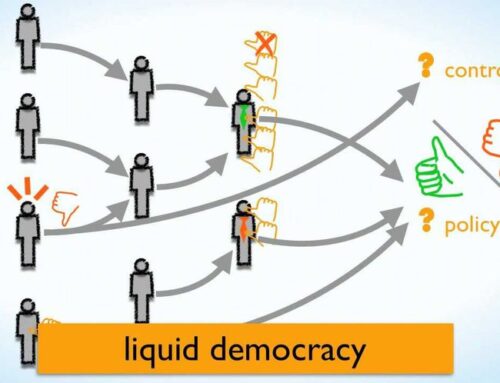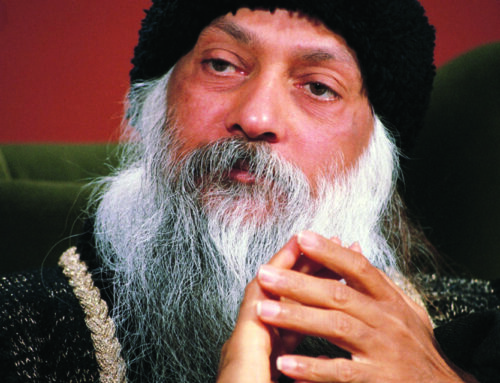What If Education Enabled People To Analyze Possibilities” Dr. Shabnam Koirala-Azad
Dr. Shabnam Koirala-Azad, the first Nepali-American woman dean of an American university, is the daughter of the renowned Magsaysay award winning journalist and media educator of Nepal, Bharat Dutta Koirala. Dr. Shabnam Koirala-Azad graduated from Mount Holyoke College with a Bachelor of Arts degree in Psychology and Education. She received her Ph.D from the University of California, Berkeley, in Social and Cultural Studies in Education. She began her career as an assistant professor of international and multicultural education at the University of San Francisco (USF). Within a few years, she became the department Chair and Associate Dean of the School of Education, where she now is the Dean, which is a very prestigious position in the American education system. Dr. Shabnam Koirala-Azad talked with DEEPAK RAJ JOSHI of New Spotlight about her education, career, experience and home country. Excerpts:
By
July 23, 2017, 1:39 p.m. Published in Magazine Issue: VOL. 11, NO. 01, July 21, 2017 (Shrawan 06,2074)
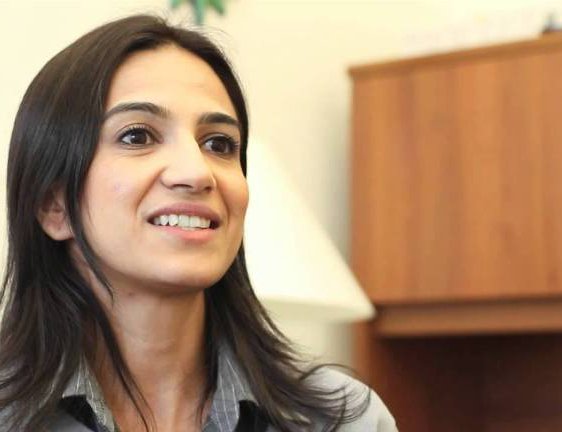
Dr. Shabnam Koirala-Azad, the first Nepali woman dean of an American university, is the daughter of the renowned Magsaysay award winning journalist and media educator of Nepal, Bharat Dutta Koirala. Dr. Shabnam Koirala-Azad graduated from Mount Holyoke College with a Bachelor of Arts degree in Psychology and Education. She received her Ph.D. from the University of California, Berkeley, in Social and Cultural Studies in Education. She began her career as an assistant professor of international and multicultural education at the University of San Francisco (USF). Within a few years, she became the department Chair and Associate Dean of the School of Education, where she now is the Dean, which is a very prestigious position in the American education system. Dr. Shabnam Koirala-Azad talked with DEEPAK RAJ JOSHI of New Spotlight about her education, career, experience and home country. Excerpts:
How do you relate to your university and your home country?
My interest in education and my passion for social change originated in Nepal. Much of my research as a doctoral student was focused on the Nepali higher education system so I continue to be rooted in the Nepali context. The School of Education at USF has a legacy of training education professionals who understand that pursuing a career in education means being aware of the social, cultural, political and economic forces influencing educational institutions and those they seek to serve. Many of our current students and alumni demonstrate the power of scholarship combined with informed practice. Promoting social justice in education has been a mission of our school and I hope to continue this legacy.
How do you empower and retain excellent faculty?
When I was considering taking this position in the USF, one of the factors that excited me was the opportunity to work with the excellent group of faculty currently in the School. Most, if not all, of the current faculty members, are well respected and recognized scholars in their respective areas of work. The knowledge being produced in the School of Education is known to be pushing the boundaries of educational and interdisciplinary research. Since many of the faculty have experience teaching in primary and secondary schools, they also come with excellent teaching skills. I value these contributions immensely and hope to continue recruiting faculty who are not only excellent in their work but also understand that students look up to them as mentors and role models. Retention of excellent faculty involves many factors–a genuine validation of their work, a recognition of their diverse and unique contributions, mentorship of junior faculty by more senior members and support from leadership. We have some of these practices and systems in place but we can always do better.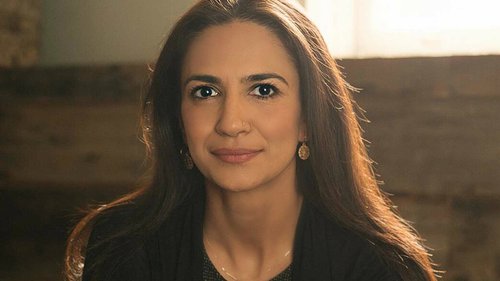
Your field of research is pretty interesting; as I gather, you have done research on globalization, immigration, education, cultural theory, gender, social change and so on. What is the key role of education in all these sectors?
My scholarship is interdisciplinary and falls in several different fields. The way I see it, the main role of education is to raise consciousness. Much of what we see and experience in our realities often go unquestioned because we have seen or experienced education as a simple consumption of knowledge but what if education actually enabled people to question various aspects of their reality and gave them the tools to both analyze possibilities and to work towards alternatives? Much of what we see as problems in society at large or education specifically are problems that have persisted through time. If we don’t see education as essential to breaking these cycles and disrupting the reproduction of these issues, then we will continue to promote a type of education divorced from actual social realities.
Privatization in education is increasing rapidly in Nepal. What is your take on private education versus public education in a developing country?
Yes, when I first conducted research on Nepali higher education in 2000, I was struck by the number of private schools that were emerging alongside a strong perception that private schools were the only educational institutions that offered quality education. During my visit this time, it felt like there was a private school sign after every other home. In many contexts where governments have not been able to prioritize quality public education as a human right and a national priority, we see this type of takeover by the private sector. I tend not to judge people for their choices but what I think is important to understand that the privatization of a public good, like education, is part of neoliberal policies and changes affecting the entire world. What this does to a country like Nepal is that it creates bigger opportunity and access gaps where these gaps are already pretty large. People who can afford to pay can have access to quality education and those that don’t are left without choices. Education also becomes a business enterprise rather than a public enterprise critical to the project of democratic social change.
Our current education system focuses on a goal being achieved. How can education experts improve schools and the whole education system and what will be your role?
This is a larger project. Education has become synonymous with credentials and degrees. There is nothing inherently wrong with this but what has been lost in this understanding of education is the role that education can play in raising critical consciousness, in promoting civic engagement, in empowering individuals to serve their communities, in offering the knowledge and tools necessary for advancing democratic communities. What we are trying to do at the School of Education at USF is to challenge some of the ways in which education has been used to uphold unequal power dynamics that benefit a powerful few and instead to promote the idea that education can be truly transformative in all the ways I mention above. This shift in understanding and implementation will take time but I remain hopeful and committed.
Recently nationalism has been a widely-discussed topic in Nepal. As someone born and brought up here, what are your take on nationalism? What can you do to stay true to your Nepali roots?
Nationalism is healthy to the extent that one can feel rooted in a national identity but can embrace other nationalities, ethnicities, and races. I’m always inspired by friends who practice a type of nationalism that is funneled into productive change efforts in Nepal. As you all know, my father and the type of commitment he has shown to empowering some of the most marginalized communities in Nepal continues to be my biggest inspiration. However, I am cautious and critical of staunch nationalism that alienates us from others and stagnates our movement forward. Our vision has to be world embracing even if we are deeply embedded in a local context.
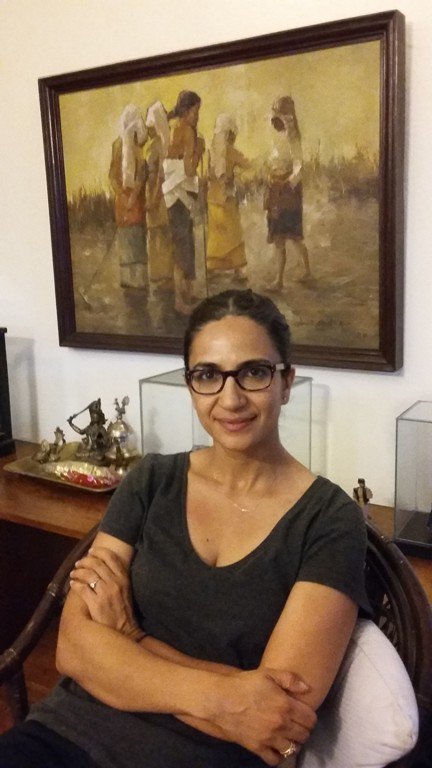
As a mother of two children, how do you think a woman can successfully balance her career and personal life?
I’m not sure balance can ever be achieved and I’m not even sure how I would measure balance. I had both my kids while being a professional–while going through grueling tenure processes at the university, while serving as Chair, Associate Dean and now Dean–so I’ve never thought of raising them as separate from other aspects of my life. When I decided to have children, my husband and I were committed to raising two human beings who would contribute to building a better world. For this reason, we have teamed up, quite well if I may say so myself, on raising them. The journey has included sleepless nights, long hours at work, sick days at home with kids so I’m not sure about “successfully balancing” but for me, it has certainly involved an intentional prioritizing of responsibilities and time. My kids have always been on the top of that list.
You are the first Nepali female to hold such a prestigious post in the American university system. What’s the key to this successful career?
I’m not sure I’m in a position to offer insights on how to lead a successful career. In my experience, it has been very important to know myself as a professional, to strive for excellence, to build authentic relationships in the workplace and most importantly, to maintain integrity.
Is there any advice you would like to give to women who want to follow your footsteps?
More than advice, I would like women considering similar professional paths to know that there are many of us who would be happy to provide guidance, mentorship and accompaniment. Since there are so few Nepali women in academia and higher education administration, it’s often hard to find people who understand our identities, our cultural contexts, our struggles and while I’ve been lucky to find colleagues and mentors from other backgrounds with whom I connect closely, it would be nice to have a network of strong Nepali mentors. Please feel free to reach out. In many of my professional experiences, I’ve had to figure out institutional cultures, expectations, norms on my own. There’s no reason why we cannot be more proactive in providing support for future generations of Nepali women.

